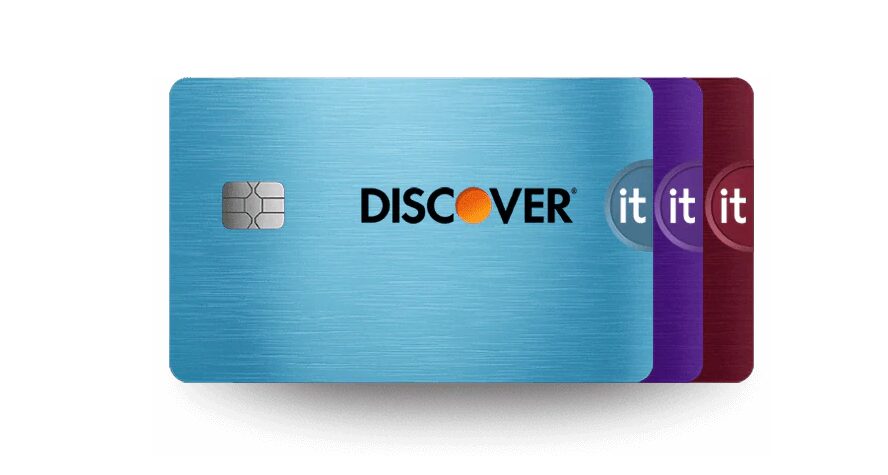The Impact of Fintechs on Financial Inclusion in the USA

Transforming Financial Access
The financial sector, once marked by its rigid structures and traditional norms, is witnessing a remarkable transformation fueled by **fintech companies**. These enterprising platforms are not merely modernizing banking services; they are opening doors for **millions of Americans** who previously found themselves on the periphery of the financial landscape. As we navigate through this brave new world, it becomes increasingly evident that fintech is serving as a critical bridge, connecting underserved communities to essential financial tools.
Enhancing Accessibility
One of the most profound impacts of fintech is its emphasis on **accessibility**. Mobile banking applications allow users to manage their finances effortlessly, from the comfort of their homes or on the go. Consider individuals living in remote areas where traditional bank branches are few and far between. For them, the ability to conduct transactions, pay bills, and access credit with just a few taps on their smartphones can be life-changing. Fintechs like Chime and Cash App illustrate this transformation, providing seamless banking experiences that empower users to take control of their money anytime and anywhere.
Driving Down Costs
**Affordability** is another substantial advantage that fintech firms bring to the table. With the introduction of lower fees and no minimum balance requirements, these businesses offer cost-effective solutions compared to their traditional counterparts. Services such as peer-to-peer payment platforms eliminate transaction fees that can burden users at brick-and-mortar banks. This financial relief is particularly significant for the **25% of adults** in the U.S. who are underbanked or unbanked, allowing them to participate in the financial system without the fear of exorbitant costs.
Empowering Through Education
Moreover, **education** plays a crucial role in this fintech revolution. Many platforms provide accessible financial literacy resources that equip consumers with the knowledge to make informed decisions. For instance, platforms like NerdWallet and Investopedia offer tutorials and calculators that demystify budgeting, saving, and investing. By investing in their financial education, individuals can learn to make wiser choices that align with their goals, ultimately nurturing a more responsible financial behavior.
This democratization of finance goes beyond mere numbers; it has transformative potential on a personal level. The heartwarming stories of individuals who have overcome financial obstacles—like single parents establishing savings accounts or young entrepreneurs launching businesses with microloans—reveal the profound impact of fintech solutions. These aren’t just abstract statistics; they are vivid illustrations of people reclaiming their financial power, navigating their paths to stability and success.
As we continue to explore the multifaceted universe of fintech, it becomes clear that it is helping cultivate a more **inclusive economy**. By embracing these advancements, we can envision a future where financial empowerment is within everyone’s reach, inspiring us all to take informed actions and become stewards of our financial destinies.
Revolutionizing Financial Interaction
A pivotal facet of the fintech movement is its ability to revolutionize how individuals interact with money. Traditionally, banking services have been marred by a one-size-fits-all approach, often alienating a significant portion of the population. Fintechs are changing this narrative by delivering personalized solutions that cater to the diverse needs of consumers, particularly those who have felt the constraints of traditional banking. Thus, these modern platforms not only facilitate transactions; they cultivate a deeper relationship between consumers and their finances.
Breaking Barriers to Entry
Barrier reduction is a cornerstone of fintech innovation. Historically, many Americans have faced obstacles such as credit score requirements, high fees, and limited access to banking infrastructure. Fintech companies like Upstart and Affirm are pioneering lending practices that consider more than just a credit score, analyzing factors such as education, job history, and income potential. By doing so, they are allowing underserved borrowers to obtain loans that might have been previously out of reach, fostering an environment where individuals can strive for economic mobility.
Fostering Community Support
An often overlooked influence of fintech is its ability to foster community-driven financial solutions. Platforms such as Kiva allow users to invest in small businesses and entrepreneurs within their own communities, generating a sense of solidarity and mutual growth. By facilitating micro-lending, fintech brings together individuals who wish to support one another, creating networks of economic resilience. This is especially beneficial in low-income neighborhoods, where traditional lending options may be scarce.
Engaging the Next Generation
The integration of technology into financial services has been particularly impactful for younger generations. With an innate comfort for technology, today’s young adults are more likely to embrace innovative financial solutions, leading to a shift in how financial literacy is approached. Educational tools and gamified saving applications, like Acorns and Qapital, are engaging users in enjoyable ways that teach them about budgeting, saving, and investing. This not only prepares them for a lifetime of financial responsibility but also fosters a proactive attitude toward personal finance.
As we reflect on these profound transformations, it is clear that fintech is redefining financial interaction and expanding access to those who have historically been marginalized. Each innovation, whether it be a mobile app enabling payments, or a supportive lending platform, serves as a stepping stone toward true financial inclusivity. The stories of individuals and communities being uplifted by these tools showcase a brighter future, where technology serves as a conduit for empowerment and change.
In this dynamic environment, the call to action is clear: we must embrace the opportunities that fintech presents. As consumers, it is crucial to engage with these platforms thoughtfully and to take charge of our financial journeys—equipped with knowledge, resources, and a community that thrives on collaboration and support. Together, we can build a future where financial power is accessible to all, creating a resonating ripple effect that strengthens our economy and society as a whole.
Empowering Individuals through Enhanced Access and Education
The transformative journey of fintech extends beyond mere convenience and cost savings; it embodies a commitment to empowering individuals through enhanced access to financial services and education. As we delve deeper into this revolution, we uncover how fintechs are not only democratizing finance but are also fostering a greater understanding of economic principles amongst everyday Americans.
Accessible Financial Services for All
Accessibility plays a crucial role in the fintech narrative. Innovative solutions like Chime and Varo provide banking services without the burdensome fees or minimum balance requirements associated with traditional banks. These platforms offer no-fee checking accounts and free money transfers, ensuring that users can manage their money without falling victim to predatory practices. Their user-friendly mobile interfaces and customer-centric approaches cater especially to low-income households and individuals who may feel overwhelmed by the banking jargon and practices of the past. By democratizing access, fintech is bringing banking into the hands of millions who previously found it elusive.
Financial Literacy Through Technology
In addition to providing services, fintechs are also at the forefront of tackling financial literacy challenges. Companies such as NerdWallet and Credit Karma offer platforms that present users with tailored advice, helping them navigate the complexities of personal finance. These tools empower individuals to make informed decisions regarding credit scores, loans, and investments. As users engage with these resources, they build a foundation of knowledge that is crucial for achieving long-term financial wellness. This shift toward education prevents the pitfalls of debt cycles and financial mismanagement, promoting not just survival, but prosperity.
The Role of Data and Personalization
Fintechs harness the power of data to deliver personalized financial advice and solutions. By analyzing spending habits and financial behaviors, applications like Mint and YNAB (You Need A Budget) create individualized budgets and savings plans tailored to specific needs. This level of personalization enhances user engagement and accountability, making the path to financial health clearer and more achievable. Users are encouraged to set goals, track progress, and celebrate small victories, which builds a sustainable relationship with their finances. Through this support system, individuals not only gain confidence in their financial choices but also feel motivated to take ownership of their financial futures.
Addressing Systemic Inequities
At the heart of fintech’s impact on financial inclusion is a commitment to addressing systemic inequities that have persisted for decades. Fintech companies are not just creating solutions; they are challenging the status quo. Initiatives like the Digital Federal Credit Union (FCU) Alliance aim to provide financial education and services particularly targeted at underserved communities, enabling people to break free from cycles of poverty. Furthermore, organizations that prioritize racial and gender diversity in their hiring practices ensure that the products developed meet the diverse needs of society, reflecting the rich tapestry of the American populace.
By fostering a culture of innovation that merges accessibility with education and empowerment, fintechs are paving the way for a more inclusive financial landscape in the United States. As consumers become increasingly aware of the options available to them, the importance of making informed and responsible financial choices cannot be understated. In this era of unprecedented technological advancement, every step taken toward financial inclusion is a step taken toward equality and justice in economic opportunities.
Conclusion: A New Era of Financial Empowerment
The emergence of fintechs heralds a new era for financial inclusion in the United States, revolutionizing the way we access and understand financial services. By prioritizing accessibility, fintechs break down barriers that have long marginalized individuals and communities. With platforms offering no-fee banking and personalized financial tools, millions now have the opportunity to engage with their finances in meaningful ways, fostering not just participation, but empowerment.
Moreover, the commitment to financial literacy through innovative technologies is indispensable. As users cultivate their financial skills, they are equipped to make informed decisions that enhance their overall well-being. This education is not just a tool for survival; it is a pathway to prosperity that enables individuals to build wealth and secure their futures.
Additionally, fintechs play a crucial role in addressing systemic inequities that have plagued the financial system for too long. By focusing on the needs of underserved communities and embracing diversity within their structures, these companies are reshaping the landscape of financial services to reflect the voices and needs of all Americans.
As we look to the future, it is essential for consumers to embrace the tools provided by fintechs and take ownership of their financial journeys. By making conscious and responsible financial choices, every American can contribute to a more equitable financial ecosystem. With each step toward financial inclusion, we are not just transforming lives; we are working toward a future where economic opportunity is a reality for everyone. Together, we can build a stronger, more inclusive financial system that truly serves all of us.
Related posts:
How American digital banks work for foreigners
Necessary Documents to Apply for a Personal Loan in the United States
Blockchain and Its Application in Financial Asset Management
Personal credit and financing apps available in the USA
The Rise of Sustainable Investment Funds in the US and Their Economic Implications
The Role of AI-Based Investment Platforms in Financial Decision Making

Beatriz Johnson is a seasoned financial analyst and writer with a passion for simplifying the complexities of economics and finance. With over a decade of experience in the industry, she specializes in topics like personal finance, investment strategies, and global economic trends. Through her work on Web Dinheiro, Beatriz empowers readers to make informed financial decisions and stay ahead in the ever-changing economic landscape.







